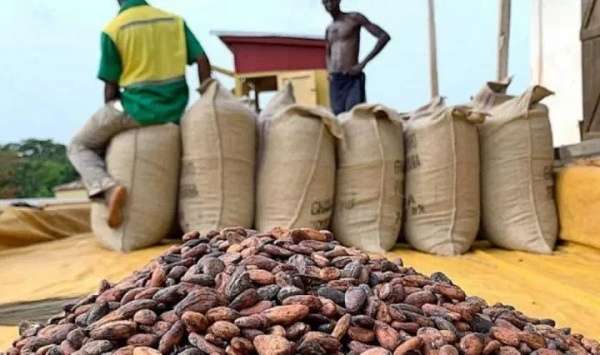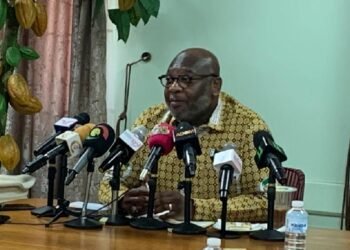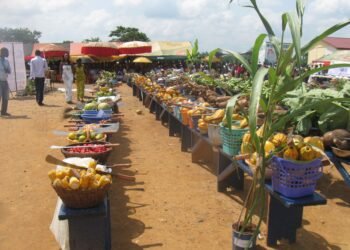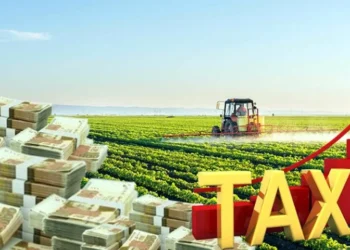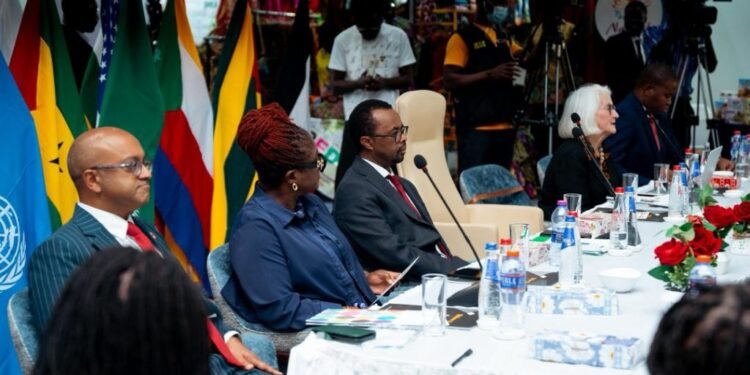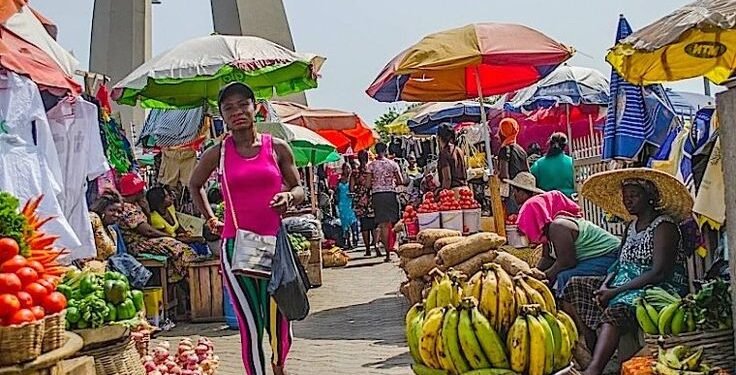Ghana’s cocoa sector, a critical pillar of the country’s economy and a vital source of livelihood for millions of farmers, is under threat from rising cases of cocoa smuggling.
In response, the Ghana Cocoa Board (COCOBOD) is intensifying efforts to safeguard the industry by collaborating with Parliament to tighten anti-smuggling laws. This initiative is part of a broader strategy to make cocoa smuggling less attractive and ensure long-term sustainability for cocoa production in Ghana.
COCOBOD has revealed that it is working closely with the legislative arm of government to amend existing laws and make the penalties for cocoa smuggling more severe. According to Jerome Sam, Head of Public Affairs at COCOBOD, the aim is to create legal provisions that act as a strong deterrent to individuals and syndicates engaged in the illegal trade of cocoa across Ghana’s borders.
“The smuggling of cocoa beans, driven largely by price disparities in neighboring countries, is bleeding the industry and must be curtailed,” Sam emphasized. Strengthening legislation, he noted, will ensure that the consequences of engaging in this activity outweigh any short-term financial gains. By making the law more punitive, COCOBOD believes it can drastically reduce the motivation to divert cocoa for illegal export.
Early Start of Main Crop Season
In a strategic shift to prevent smuggling, COCOBOD is also adjusting the cocoa production calendar. One key change is the advancement of the main crop season from October to August. This move, according to Jerome Sam, is intended to stay ahead of the smuggling trend, which typically intensifies in the early months of the harvest season when cocoa beans are ready for sale.
The earlier start of the season is expected to increase the availability of legal channels for farmers to sell their cocoa beans, thereby reducing the temptation to exploit illegal markets across borders. It also aligns with COCOBOD’s broader goal of synchronizing production and purchasing schedules to maximize domestic retention of cocoa output.
Another crucial intervention COCOBOD is implementing is the assurance of prompt payments to cocoa farmers. Timely compensation, the Board believes, is one of the most effective tools in discouraging farmers from selling their produce illegally.
“We have to make sure that we do prompt payment. So even if it is GHȼ1, the person must get his money there and then. If I am assured of getting paid when I take my cocoa to the District Officer (D.O) or any Licensed Buying Company (LBC), why would I engage in illegality?”
Jerome Sam
This approach not only reinforces farmer confidence in the formal supply chain but also builds trust between farmers and regulatory institutions. The ultimate goal is to incentivize loyalty and patriotism among cocoa farmers, ensuring they remain committed to supporting the Ghanaian economy through legal sales.
A Comprehensive Strategy to Combat Smuggling
COCOBOD’s multi-pronged strategy reflects a deeper understanding of the socio-economic factors fueling smuggling. Price disparities in neighboring countries such as Côte d’Ivoire and Togo make cocoa smuggling a lucrative business for unscrupulous individuals. By addressing these incentives—through legal reforms, prompt payments, and crop season adjustments—COCOBOD is positioning itself to effectively neutralize the drivers of this illegal trade.
In addition to legislative changes, COCOBOD is engaging with other key stakeholders, including security agencies, local governments, and cocoa cooperatives, to bolster surveillance and enforcement at border communities. Public education campaigns are also being launched to raise awareness of the dangers smuggling poses to the industry and national revenue.
COCOBOD’s aggressive push to curb cocoa smuggling signals a new era of proactive leadership in Ghana’s cocoa sector. By strengthening the legal framework, adjusting operational timelines, and ensuring fair treatment of farmers, the Board is laying a solid foundation for the protection and growth of one of Ghana’s most prized commodities.
READ ALSO: President Mahama Champions Debt Reforms, Inclusive Growth

